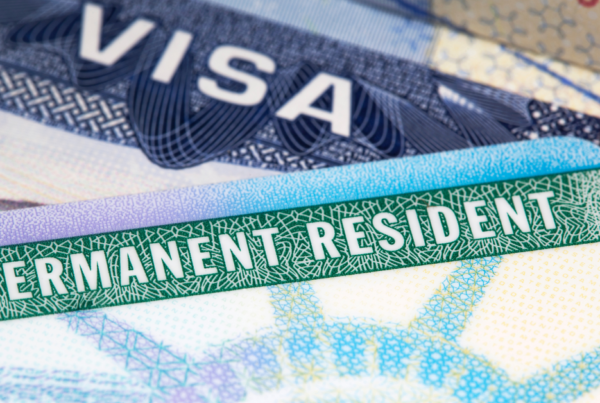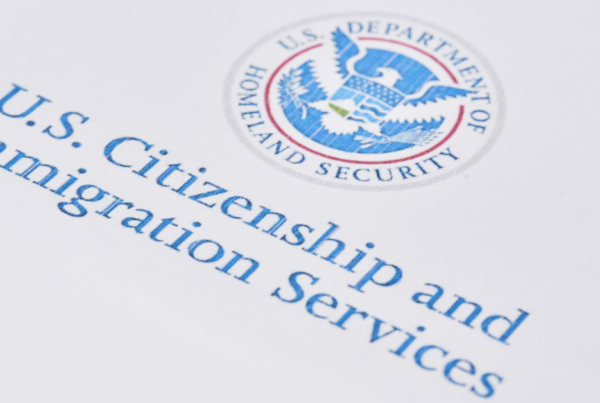
Today an immigration attorney San Diego trusts is sharing 10 immigration laws in the state of California that you should know! As an immigrant, it’s important for you to familiarize yourself with immigration law in your state, not only because you’re expected to abide by these laws, but because it’s critical that you know when your rights as a U.S. immigrant are being infringed upon.
Immigration Attorney San Diego Shares 10 Laws You Should Know
1. California State and Local Law Enforcement Under State Sanctuary Law May Not…
In the state of California, state and local law enforcement may not:
a) Detain you on a hold request made by the federal government unless they have a warrant or you have committed a felony.
b) If you are an undocumented immigrant, they may not transfer you into federal custody unless you have been convicted in the last 15 years of a crime that is one of the listed offenses on California’s Trust Act or you are a registered sex offender.
c) Ask about your immigration status or share any information about you that is not available to the general public with federal immigration authorities.
2. Employers in California State Must…
Employers in the state of California must verify all prospective employees’ authorization to work in the United States. Within three days of hiring an employee, an employer must fill in I-9 forms which include verification that an immigrant is permitted to work in the U.S. however, the state of California does prohibit the mandatory use of the e-verify system to verify this employment information.
3. To Obtain a State ID or Driving License in the State of California…
In order to obtain your state ID or driving license in the state of California, you are legally required to provide verification of your birth date as well as proof of your legal residence in the U.S. If you are unable to provide proof of either of these two things, you will be denied a state ID or driving license.
4. Public Benefits Permitted to Residents in California
Federal law prohibits access to public benefit programs by illegal immigrants, but it does permit access to emergency services, health care, and other programs that have been labeled as “necessary to protect life and safety.” California state, however, has a number of programs available to immigrants despite their immigration status. If you want to find out more about these programs, the California Department of Social Services has more information available on their website.
5. When It Comes to Education in the State of California…
Although many U.S. states limit access to education by illegal immigrants by denying access to in-state tuition rates, the state of California does not. The DREAM Act, passed in California state, allows undocumented immigrants who are current or prospective students in the state to access in-state tuition rates at public universities. Further legislation also allows for these students who do qualify for in-state tuition to be eligible to apply for and receive financial aid.
6. Housing and Illegal Immigrants in California State
In the state of California, there is no law or ordinance that prohibits the rental of property or housing of illegal immigrants based on immigration status. Landlords may also not use a tenants illegal immigration status to leverage their eviction. Additionally, landlords may not report the immigration status of their tenants. If your rights to housing have been infringed upon by your landlord, contact an immigration attorney San Diego trusts to represent you.
7. In California, Illegal Immigrants Can Testify in Court Without Fear
The California governor has passed a bill which protects the immigration status disclosure of an illegal immigrant who is testifying in court. This bill is designed to allow justice to prevail over all else in California courtrooms by eliminating the fear of being revealed as an illegal immigrant.
8. Disaster Assistance in the State of California
Although there are limitations on public assistance benefits, undocumented immigrants are still eligible for many disaster relief assistance programs. Additionally, when seeking assistance for documented family members, you are not required to divulge your own personal information so you should not fear being reported to the immigration authorities. If you are applying for assistance for documented family members and are asked for personal information, be clear that you are not seeking benefits for yourself.
It’s also important to know that immigration authorities have been clear in stating that they are not conducting immigration enforcement at disaster relief resources such as food banks and shelters.
9. State and Local Law Enforcement Officers May Not…
In the state of California, state and local law enforcement officers are not allowed to arrest you based solely on your immigration rank. If you feel that you have been arrested based on nothing more than your immigration status, immediately contact an immigration attorney San Diego trusts like Nelson Immigration Law, and report the incident to them and retain their services.
10. If a Local Law Enforcement Agency Receives a Transfer, Detainer, or Notification Request…
Upon receipt of a transfer, notification, or detainer request, local law enforcement much both provide you with a copy of that request AND inform you whether or not their agency intends on complying with the notification, detainer, or transfer request.
Have Questions For an Immigration Attorney San Diego Trusts?
If you have unanswered questions about immigration laws and the state of California, Nelson Immigration Law can help! Just pick up the phone and call 626-683-3451 to get your questions answered and to retain an expert attorney for your immigration needs.



